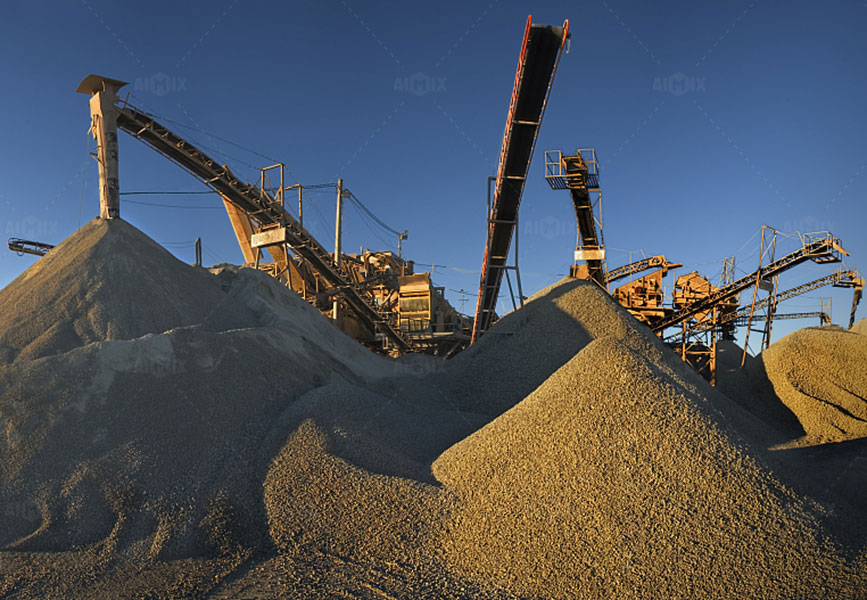Stone crushing and screening plants require careful management of capital costs and operating expenses to ensure profitability and efficiency. Achieving the right balance between initial investments and ongoing operational costs is crucial for sustainable business growth in the aggregate industry.
To effectively navigate this complex landscape, stone crushing plant operators must consider the following key aspects:
Optimizing Capital Investments
Investing in stone crushing and screening plants involves substantial capital expenditures, which must be optimized to maximize return on investment (ROI) and long-term profitability.
Equipment Selection and Acquisition
Choosing the right equipment is paramount in minimizing initial capital costs while ensuring efficient operation and high productivity. This includes selecting aggregate crushers, screens, conveyors, and auxiliary equipment that match the production requirements and quality standards of the aggregates market. Evaluating factors such as capacity, durability, energy efficiency, and maintenance requirements helps in making informed decisions that align with financial objectives and operational goals.

Infrastructure Development
Developing infrastructure for stone crushing plants entails significant capital outlay for site preparation, foundations, utilities, and structural enhancements. Effective planning and budgeting are essential to control construction costs without compromising on safety, environmental compliance, or operational efficiency. Implementing robust project management practices and engaging experienced contractors contribute to timely execution and cost containment during the infrastructure development phase.
Managing Operating Expenses
Beyond initial capital investments, stone crushing and screening plants must efficiently manage ongoing operating expenses to sustain profitability and competitive advantage.
Energy Management and Efficiency
Energy consumption constitutes a substantial portion of operational expenses in stone crushing plants. Implementing energy management strategies, such as optimizing crusher settings, utilizing energy-efficient motors, and adopting renewable energy sources where feasible, helps in reducing overall power consumption and operational costs. Continuous monitoring of energy performance metrics and periodic energy audits enable plant operators to identify inefficiencies and implement corrective actions to enhance cost-effectiveness.

Maintenance and Wear Parts Management
Effective maintenance practices are critical in minimizing downtime and extending the lifespan of equipment components, thereby reducing replacement costs and enhancing operational reliability. Developing a proactive maintenance schedule, conducting regular inspections, and adhering to manufacturer-recommended servicing intervals mitigate the risk of equipment failure and associated repair expenses. Furthermore, implementing a systematic approach to managing wear parts inventory ensures timely replacement of critical components, optimizing crusher performance and throughput efficiency while controlling operating expenditures.
Strategic Financial Planning and Risk Management
Stone crushing and screening plant operators must adopt a strategic approach to financial planning and risk management to navigate fluctuations in capital and operating costs effectively.
Cost-Benefit Analysis and ROI Evaluation
Conducting comprehensive cost-benefit analyses allows operators to assess the financial viability of capital investments and operating expenditures over the plant’s lifecycle. Evaluating ROI metrics, such as payback period and net present value (NPV), facilitates informed decision-making regarding equipment upgrades, process optimizations, and expansion initiatives. Incorporating scenario planning and sensitivity analysis into financial projections enables proactive risk mitigation and enhances financial resilience against market uncertainties and regulatory changes. You can calculate the ROI before investment, get help from AIMIX.
Compliance and Regulatory Obligations
Adhering to industry regulations and environmental standards is integral to mitigating legal risks and potential penalties associated with non-compliance. Allocating resources for regulatory compliance, obtaining necessary permits, and implementing sustainable practices promote operational integrity and corporate responsibility. Engaging with regulatory authorities and industry stakeholders fosters transparency and reinforces the organization’s commitment to environmental stewardship and community engagement.
In conclusion, achieving a harmonious balance between capital costs and operating expenses is essential for sustainable profitability and operational efficiency in screening and crushing plant. By optimizing capital investments, managing operating expenditures effectively, and implementing strategic financial planning, plant operators can navigate economic challenges, enhance productivity, and maintain a competitive edge in the dynamic aggregate industry landscape.
